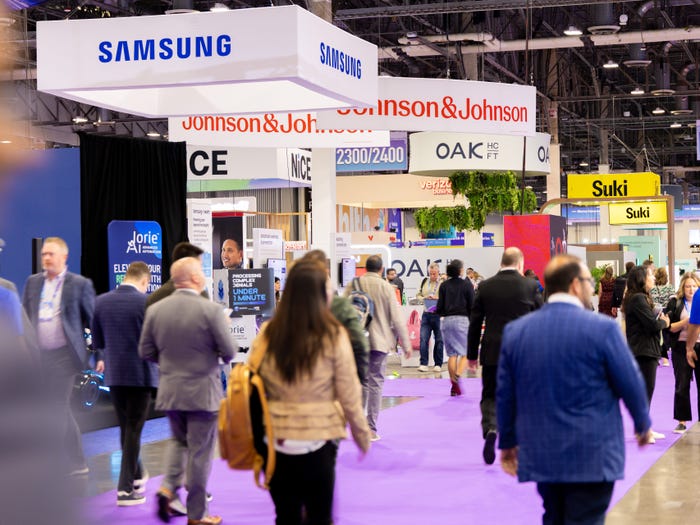UPDATE: The 2025 HLTH Conference in Las Vegas has erupted as a critical stage for AI in healthcare, but tensions are rising among startups facing fierce competition from tech giants. Nearly every company showcased at the event, which spans from October 15-18, is claiming an AI angle, underscoring a growing sense of fatigue and fear of an impending AI bubble.
Attendees report a palpable atmosphere of uncertainty as healthcare executives grapple with the reality that industry heavyweights like OpenAI and Epic are intensifying the competitive landscape. Blake Wu, a partner at NEA, remarked, “In my portfolio, people view OpenAI and Anthropic much more as a threat than they ever viewed Amazon or Microsoft.” This sentiment reflects a broader concern about whether smaller startups can survive amidst such formidable competition.
In a staggering statistic, healthcare AI startups pulled in $6.4 billion in venture capital during the first half of 2025, with a significant 62% of that funding directed toward AI innovations. Yet, the presence of established players looms large. Epic, while absent from the conference floor, announced plans to introduce its own AI tools, including an AI scribe that directly competes with startups like Abridge.
The conference floor buzzed with AI-themed booths, including those from Innovaccer and SoundHound, showcasing their AI solutions with slogans like, “Your data. Our agents. Real outcomes.” A massive “AI Zone” featured an “AI Theater” for startup presentations, further emphasizing the event’s dedication to AI technology. However, some attendees expressed frustration at the lack of distinctiveness, with one executive stating, “Everyone is framing themselves as the most generic, enterprise-wide agentic AI solution.”
Despite the excitement, critics warn of oversaturation in key markets such as hospital administration. Nate Gross, OpenAI’s new head of healthcare strategy, participated in a panel alongside tech giants, but provided limited insights into OpenAI’s strategic plans for healthcare. His presence highlighted the urgent need for startups to differentiate themselves in a crowded marketplace.
The spectacle of HLTH, often dubbed the “Dreamforce of healthcare,” is compounded by the luxurious setting of the Venetian Resort, where attendees can indulge in everything from pickleball to puppy parks between meetings. Yet, amidst the glitz, a sense of reality sets in as many healthcare leaders question whether the influx of AI will yield tangible benefits or simply contribute to a growing bubble.
In parallel developments, OpenEvidence has announced a monumental $200 million funding round at a staggering $6 billion valuation, marking the largest raise revealed at HLTH. Meanwhile, Hyro secured $45 million in funding, showcasing the ongoing investor interest in AI solutions.
Several discussions also spotlighted advancements in biotech and pharma, with leaders from GSK and Novartis emphasizing the integration of AI to enhance research and clinical trials. Notably, women’s health was highlighted as a growing focus area, reflecting a shift in priorities within the industry.
As the event progresses, stakeholders remain cautious about the future of AI in healthcare. The sentiment is clear: while the potential for innovation is exciting, careful and responsible development must guide the industry to avoid the pitfalls of previous tech bubbles.
As the HLTH Conference continues, all eyes will be on how startups navigate this dynamic environment, especially as they face existential threats from both established giants and the unpredictability of the market. The coming days will be crucial for understanding the true impact of AI on the healthcare landscape.







